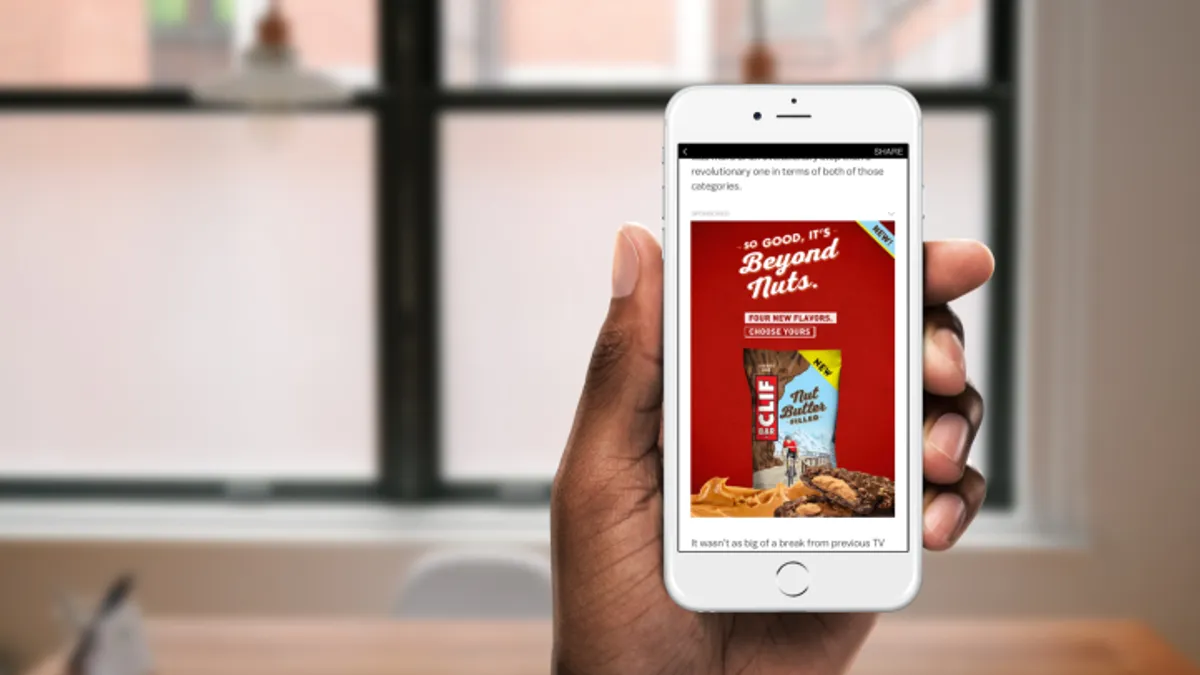Dive Brief:
-
Facebook announced in a blog post that it's testing ad units in the related reading portion of Instant Articles. Instant Articles are Facebook's mobile-optimized publisher pages, which load in Facebook's app rather than send readers to external links.
- Recommended ads for Instant Articles aim to be "native to both the form and function of the content surrounding them," Ben Peskoe, product marketing at Facebook, wrote in the post.
-
The move comes as part of Facebook's ongoing Journalism Project, which seeks to offer publishers and their advertising partners more monetization and customization options. A few weeks ago, Facebook laid out plans to improve its Automatic Ads Placement feature for Instant Articles, allowing ads to appear more frequently on publisher pages.
Dive Insight:
Facebook, long standing on rocky footing with publishers, continues to put a premium on Instant Articles to expand revenue potential and also keep readers within its own ecosystem of apps and services. Facebook's audience now has a strong mobile focus, with 1.15 billion daily active users on the channel alone. Those users are also hungry for more mobile content, which means sending them offsite bites into Facebook's bottom line. That risk creates a strong incentive to build out a "walled garden" feature like Instant Articles.
Placements in the recommended reading section of Instant Articles might be a welcome change for publishers, opening up more ad real estate and being presented in a native format that users enjoy for its organic feel and content-centric focus. Native ads can also help skirt obstacles like ad blocking technology, though whether readers will actually engage the new offerings is still an open question.
"We're running this early test to collect signal on the impact this change has on reader behavior and publisher yield in Instant Articles," wrote Peskoe.
Last October, Facebook greatly expanded its marketing offerings with Instant Articles, rolling out video and native Carousel ads across the iOS and Android versions of its app. The platform also opened up the ability to tap into Facebook's Audience ad network and to run direct sold campaigns that provide publishers with 100% of revenues.
Instant Articles rub directly up against Google's Accelerated Mobile Pages (AMP), which serve essentially the same purpose but are more open source in nature, delegating greater control over content to publishers.















